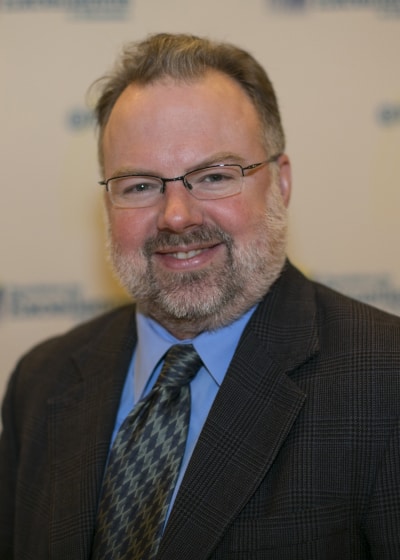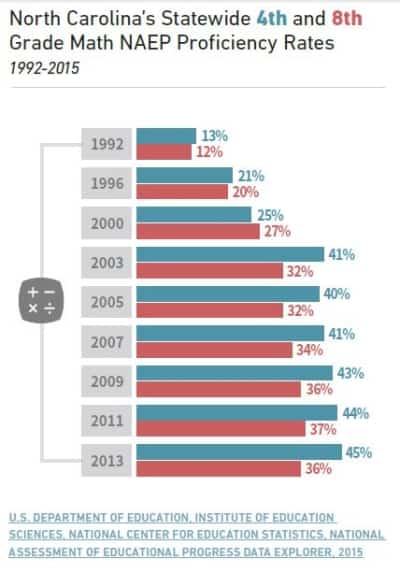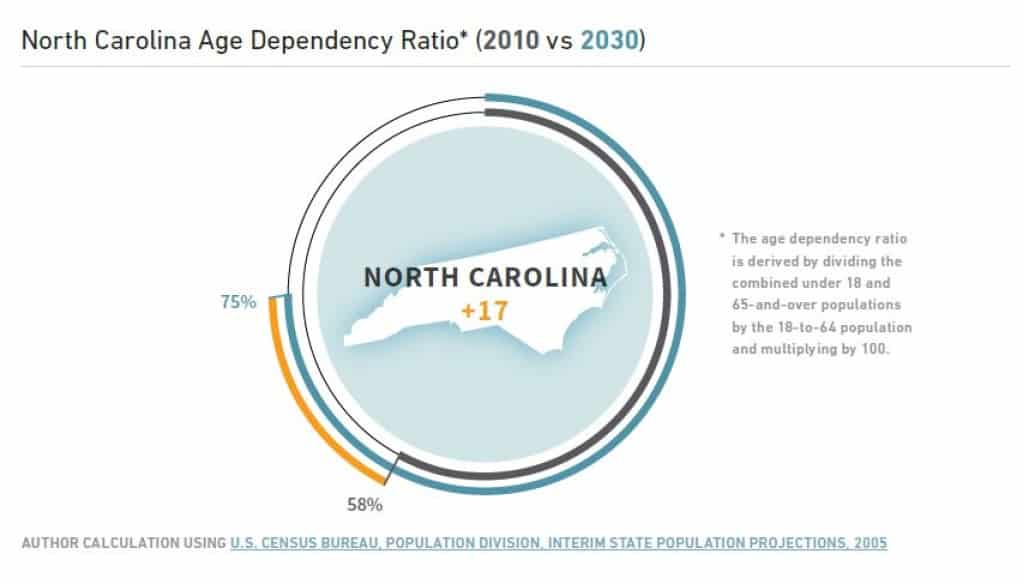Parents for Educational Freedom in North Carolina (PEFNC) is a statewide organization that supports greater educational options through parental school choice, such as public charter schools and the Opportunity Scholarship Program. The mission is to inform parents of the benefits of expanded options and empower them to exercise freedom in meeting their children’s needs, regardless of race, national origin, income, or religion.
Founded by former Florida Governor Jeb Bush, the mission of the Foundation for Excellence in Education (ExcelinEd) is to build an American education system that equips every child to achieve his or her God-given potential.
Yesterday, Parents for Educational Freedom in North Carolina (PEFNC) hosted a luncheon to spotlight the Foundation for Excellence in Education’s new report, “Record Breaking Heatwave: Baby Boomer Retirement, Student Enrollment and the Future of North Carolina.”
Rep. Craig Horn, introduced as the education legislator, set the stage for the policy discussion.
“It’s about the child,” said Horn. “Not the system. Not the bureaucracy.”
Horn added, “We need to have a better understanding of what works for each child. We need to understand the challenges that we have ahead of us and learn from the past but not live in it. We need to be able to address the needs of individual kids. And give the child an opportunity to succeed.”
He concluded, “One of those kids is going to bring peace to the world and feed the hungry. But we don’t know which one.”
Here is the report:
In the foreword to the report, Patricia Levesque, the CEO of ExcelinEd, writes:
America is witnessing profound changes in the age makeup of its population. Put simply, there are more grandparents and grandchildren, with fewer people in between.
What does that mean for North Carolina?
It means there will be increased demands on the state to cover expenses such as Medicaid, government pensions, senior services and education. And there will be a disproportionately smaller number of working taxpayers to cover the costs.
…
To support both the young and elderly, the working-age North Carolinians of the future who are sitting in today’s classrooms, must be educated, skilled, efficient and innovative. How well their schools prepare them for the challenges ahead will determine North Carolina’s fate.
The author of the report, Dr. Matthew Ladner, is the senior advisor for policy and research for ExcelinEd, and he presented his findings at the luncheon to a group of legislators, the media, and PEFNC stakeholders, including the founding chair of the organization Rene Jones.
Ladner said North Carolina knows how to move the needle on student achievement. “These are real gains. The needle in North Carolina moved. … I think what you all are doing now is laying the groundwork for another surge.”
But with the youth population becoming more ethnically diverse and the graying of baby boomers, Ladner says generational conflict will make politics even more contentious.


According to the report, in North Carolina, the age-dependency ratio will increase from 58 percent in 2010 to 75 percent in 2030. The report says, “Broadly speaking, one can think of a total age dependency ratio as the number of people riding in society’s cart based upon age compared to every 100 people pushing the cart….[A] high total age dependency ratio translates to fewer working-age people supporting services for a larger number of young and elderly people.”
Ladner said, “Given other spending priorities, you have to increase return on investment in K-12 system.”
The report says continued enrollment growth “is only partially offset by current choice and charter laws.” Ladner suggested focusing on growth and innovation, noting:
“There are more than enough students to go around. The public school system needs all the help it can get. There are more kids going to these schools. There are more people working in these schools. How can we make sure more students are succeeding?”
The report says, “Another example of additional spending with a potentially high return on investment involves the provision by the state of school bonuses for the earning of college credit by exam and/or high demand professional certifications.”
Ladner said Florida introduced incentives to increase the number of students that pass AP tests with higher incentives for low performing schools. Now, he says, Florida has highest AP passing rate in the country. Ladner noted that taking AP coursework leads to higher completion rates in college. Florida then decided to incent industry certifications too.
Ladner said, “This is money with a big return on investment.”
Ladner also talked about education savings accounts (ESAs), which the report says “represent a next-generation choice model.”
According to the report, “Accounts have limited but multiple uses: private school tuition, individual public school courses, community college and university tuition and fees, services from licensed therapists, online education programs, transportation, books and curriculum and savings for higher education use.”
How will parents know which options to choose, which options will best serve their kids, asked Ladner. “You do need a state system of oversight,” he said. “You can build a system to detect, deter, and punish the misuse of funds.”
Ladner concluded his presentation with some takeaways. “We have a very difficult situation on the immediate horizon,” he said. “The priorities will differ between young and old and that will make it more contentious.”
He continued, “We can’t solve it without improving our education system.”
The bottom line he said to lawmakers, “You need a plan.”
Pamela Blizzard, the managing director of Research Triangle High School, a charter school in RTP, says:
“Dr. Ladner’s thesis that the squeeze on our state’s workforce by 2030 to carry the financial burden of both aging Baby Boomers and rising K-12 population is important to consider. His proposal that, because of that squeeze, every person in that 2030 workforce needs to be better educated and higher contributing, is compelling. I would add that therefore we need to do much more to guarantee that whatever forward-thinking options we choose as a state are absolutely delivering that ‘better educated, higher productivity’ piece of the equation.”
Here is Dr. Ladner’s presentation:
The policy brief and report can be downloaded here.








